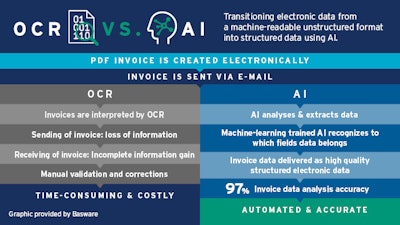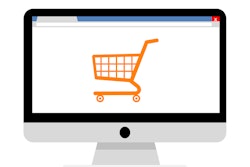
No matter how big or small your organization, or how many invoices your accounts payable team processes annually, if you are still relying on paper invoices and manual processes, you are likely facing several challenges. These challenges include high cost of invoice processing, lengthy payment cycles, unnecessary errors and exceptions, increased supplier payment status inquiries and late payments. Any of this sound familiar?
And, by the way, these are true during the best of times, so when you consider a time like the current global crisis, the cost and complexity only increases. Organizations are currently experiencing delays in receiving mail, most employees are working remotely and don’t have easy access to paper documents and some suppliers are looking to on-time or even accelerated payments just to stay in business. The impact of paper invoicing is severe and far reaching.
Let’s do the math
What most organizations overlook is that paper invoicing has consequences far beyond just process inefficiencies and higher costs. The environmental impact of invoicing is not often factored into the equation.
Consider this, 10% of trees cut down globally becomes paper for invoices. And, the disproportionate amount of energy required to produce these invoices equals the annual energy consumption of 20 million households. If you are an organization receiving 20,000 invoices a year, that amounts to 96 trees, 300 tons of water and 24 tons of CO2 annually. Globally, 70% of invoices are still sent in paper format – that’s a lot of trees, water, energy and CO2 emissions.
So, what does it take to make the switch from paper-based systems to electronic invoicing, to positively impact your organization and the environment? According to Billentis, the cost of processing a paper invoice manually is €17.60. And, it doesn’t stop there. It can cost your supplier an additional €6.60 to send that paper invoice. By receiving and processing invoices electronically, you can reduce the cost per transaction of an invoice by 64% from €17.60 to just €6.40.
A Hackett Group study further identified that electronic invoicing results in significant improvements in on-time payments and invoice matching, as well as reduction in time spent on supplier inquiries.
Improving green credentials
Electronic invoicing is also an opportunity for organizations to improve their green credentials by reducing CO2 emissions. A recent scoping study by Basware into the carbon impact of electronic invoicing revealed that switching from paper-based systems to electronic invoicing services results in an estimated 36% reduction in emissions.
If you haven’t already, it is time to evaluate options to go paperless with electronic invoicing. In the short-term, it will save your organization time and money and enable your accounts payable staff to work from wherever needed, which allows your strategic and smaller suppliers to be paid on time or even early, strengthening the supply chain. In the long-term, you will make a significant contribution towards protecting the environment.











